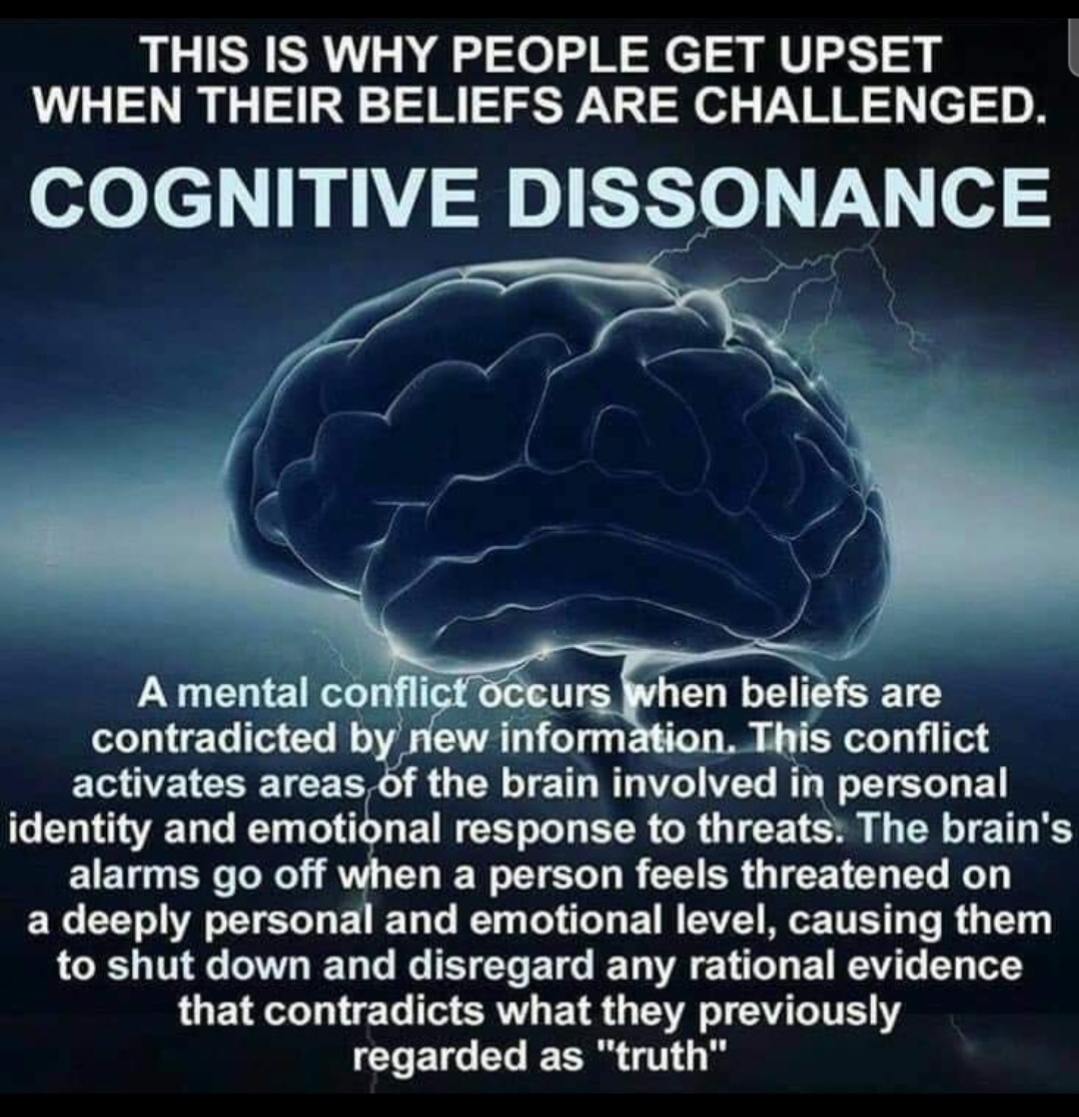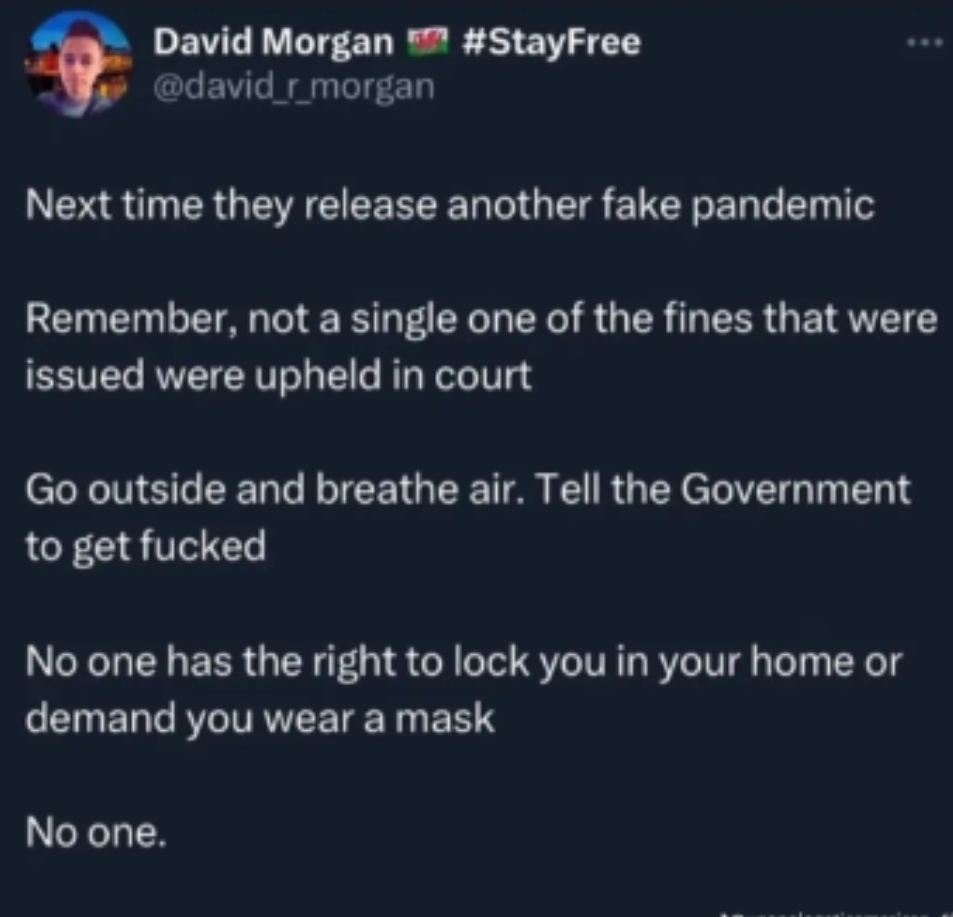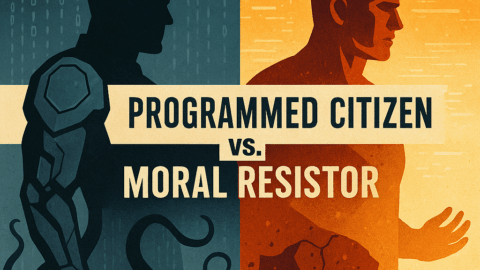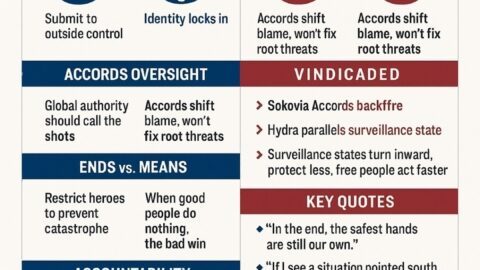
The Arrest of Jefferson Davis and the Events Leading to His Trial
After the fall of Richmond, Virginia, on April 2, 1865, and General Robert E. Lee’s surrender at Appomattox on April 9, Confederate President Jefferson Davis fled south with his cabinet in hopes of reorganizing the Confederate government. He intended to reach Texas, where Confederate forces under General Edmund Kirby Smith still held out. However, on May 10, 1865, Union cavalry forces surrounded his camp, and Davis was taken prisoner near Irwinville, Georgia.
A fabricated rumor spread that he was caught wearing women’s clothing to disguise himself, a narrative meant to humiliate, discredit and vilified him.
Detention and Imprisonment at Fort Monroe
Davis was taken to Fort Monroe, Virginia, where he was imprisoned in harsh conditions. He was confined to a small, damp cell and placed in leg irons, an act that outraged even some in the North. For two years, he was held without trial, during which time his health deteriorated. The federal government, particularly President Andrew Johnson’s administration, faced significant pressure to prosecute Davis for treason.
Charging Davis with treason seemed straightforward (or was it)—he had led a rebellion against the Northern/Union Government, who laid claim to be the rightful heir and legitimate seat of the government.

Legal and Political Challenges to a Trial
The Northern leadership, particularly Attorney General James Speed and Chief Justice Salmon P. Chase, understood the immense legal and political risks of putting Davis on trial. There were several reasons why a trial would have been disastrous for the Union:
The Legality of Secession
- Davis and his legal team, including prominent Northern and Southern lawyers, were eager to take the case to court. Their primary defense was that secession was legal under the Constitution. If the case went to trial, the defense would argue that the Constitution never explicitly forbade a state from leaving the Union, and they would point to the Tenth Amendment (which reserves powers not delegated to the federal government to the states).
- If Davis was put on trial, his defense would force the federal government to legally define secession.
- If the court ruled in favor of Davis, it would have legitimized secession and undermined the entire justification for the Civil War. It would mean that the war was not about preserving the Union under lawful authority but rather an act of conquest against sovereign states and would have been unconstitutional.
The “Fruit of the Poisonous Tree” Doctrine & Nullification (Ethical and Legal Consequences)
- If Davis were put on trial and found not guilty, it would have called into question all Union actions taken during and after the war.
- A treason trial would require legal proof that Davis had committed acts of war against the United States.
- It would suggest that the federal government’s occupation of the South, the military tribunals, and even the Emancipation Proclamation had no legal basis because they were enacted under the assumption that the Confederacy had no legal standing—when in reality, if secession were legal, then the Confederate government was a lawful entity, not a rebellion.
Implications for Confederate Leaders and Soldiers
- A trial for treason could have opened the door to thousands of additional trials for Confederate generals, officials, and even common soldiers. This would have delayed reconciliation and prolonged division within the nation.
- It would also have led to increased scrutiny of Union war crimes, particularly the treatment of Southern civilians, the destruction of property, and actions like Sherman’s March to the Sea.
Salmon P. Chase’s Dilemma
- Chief Justice Chase, who would have presided over the trial, was deeply concerned that a ruling in Davis’ favor would destroy the North’s justification for the war.
- Chase was known to be sympathetic to the legal arguments in favor of state sovereignty, and he believed that a trial could result in an acquittal. This would mean that, in hindsight, the war itself had been unconstitutional.
The Government’s Decision to Drop the Case
As a result of these legal and political complications, the federal government never brought Jefferson Davis to trial. In 1867, Davis was released on bail (funded in part by wealthy Northerners, including abolitionists like Horace Greeley, who believed that reconciliation was more important than retribution). The case was formally dropped in 1869, effectively ending the legal pursuit of Davis.
The Trial That Could Have Undone the War
The failure to prosecute Davis was not an act of mercy but one of necessity. The legal consequences of admitting in court that secession was constitutional would have nullified the Union’s moral and legal justification for the war. The Northern leadership understood that bringing Davis to trial could unravel everything they had fought for, and as a result, they chose to let him walk free rather than risk the legal precedent his trial would have set.
Davis himself, far from being a broken man, saw this as a vindication of the Confederate cause. He spent his later years defending the principles of Southern independence, writing extensively on the war, and reinforcing the “Lost Cause” narrative. Though he never again held political office, his release ensured that the debate over states’ rights vs. federal authority would continue for generations.
- Jefferson Davis’ The Rise and Fall of the Confederate Government, Volume I
- Jefferson Davis’ The Rise and Fall of the Confederate Government, Volume II
- Jefferson Davis’ A Short History of the Confederate States of America
- Republic of Republics; or, American Federal Liberty
The Case Against Jefferson Davis: A Study in Lawfare
The legal proceedings against Jefferson Davis, the former president of the Confederate States, represent one of the earliest and most significant instances of lawfare—the strategic use of legal systems and courts to achieve political or military objectives. Davis was charged with treason after the Civil War, but the federal government ultimately dropped the case, fearing that a trial could undermine the Union’s justification for the war and expose constitutional contradictions.
This case is a classic example of how law and politics intersect, and it offers a cautionary tale about the weaponization of legal systems in moments of national crisis.
The Broader Implications: Lawfare in American History
What Is Lawfare?
Lawfare refers to the use of legal systems and judicial processes as a weapon to achieve political, military, or ideological goals. The Davis case is an example of:
- Using legal charges to suppress political opponents.
- Avoiding a trial to prevent legal precedents that could undermine the victor’s narrative.
- Manipulating public perception through legal actions rather than direct political discourse.
Parallels to Modern Lawfare
- Post-9/11 detentions at Guantanamo Bay, where detainees were held without trial to avoid setting legal precedents.
- Impeachments and politically motivated indictments in modern U.S. politics.
- Use of national security laws to target dissidents while avoiding open legal scrutiny.
Davis’ case illustrates how governments, even in democractic-republics, strategically use (or avoid) the courts to protect their narratives and prevent unintended consequences.
A Strategic Avoidance of Justice
The case against Jefferson Davis wasn’t abandoned because he was innocent of succession, but because a trial posed too many risks for the North/Union administration.. A conviction was uncertain, and a not guilty verdict could have undermined the legitimacy of the war and rewritten the legal understanding of secession.
Instead of facing trial, Davis was quietly pardoned, ensuring that the North’s legal and historical narrative remained intact. This event stands as an example of lawfare—where legal proceedings were weaponized not to achieve justice, but to protect political power and avoid inconvenient truths.
Similarities for Modern Times
There are interesting parallels between the post-Civil War legal dilemma surrounding Jefferson Davis and the narrative enforcement during the COVID-19 pandemic, particularly in terms of coercion, lawfare, suppression of dissent, and retrospective vindication of those who questioned official accounts.
Controlling the Narrative: The North’s Justification vs. COVID-19 Mandates
- In both cases, a dominant authority (the Union government in the 1860s, public health and political leaders during COVID-19) took unilateral control of the narrative, framing any opposition as treasonous or dangerous.
- The North framed secession as illegal and Confederates as traitors, despite the fact that the Constitution did not explicitly forbid secession. Similarly, during COVID-19, those questioning lockdowns, vaccines, and mandates were labeled as “science deniers,” “selfish,” or even “domestic threats” despite a lack of long-term evidence supporting many of the policies.
- In both cases, dissent was not merely discouraged—it was punished, whether through legal action (Davis’ imprisonment, businesses being shut down for defying mandates) or social ostracization (censorship, firings, media blackouts).
Lawfare and the Weaponization of Legal Systems
- Jefferson Davis was imprisoned for two years without trial, and when he demanded his day in court, the government chose to drop the case, fearing that an open legal battle would expose the inconsistencies of the Union’s argument regarding secession.
- Similarly, COVID-era mandates were enforced through lawfare—governments imposed executive orders, emergency declarations, and legal threats to force compliance, knowing full well that by the time legal challenges worked through the system, the damage would be done.
- Many legal challenges to COVID restrictions were eventually overturned—just as many post-war legal scholars acknowledged the weakness of the North’s legal case against secession—but by then, the damage was already done.

Fear as a Political Tool
- The North used fear to justify its crackdown on the South: if secession was allowed, the Union would collapse and chaos would ensue.
- During COVID-19, governments used fear of the virus to justify extreme measures, from lockdowns to vaccine mandates, claiming that millions would die if compliance wasn’t universal.
- In both cases, fear silenced opposition and forced people into compliance—only for later evidence to reveal that many of the extreme measures were overreactions or based on flawed assumptions.
Dissenters Were Proven Right—But Too Late
- Post-Civil War legal discussions revealed that the South had strong constitutional arguments, even if politically inconvenient for the Union.
- Likewise, many COVID-19 dissenters—who warned of excessive government overreach, vaccine side effects, and economic fallout—were ultimately proven right, but only after irreversible harm had already been done.
- Just as Davis was never convicted but still vilified, those who opposed COVID-19 mandates may have been legally and scientifically correct, but they remain socially and politically ostracized.
The Endgame: A Consolidation of Power
- After the Civil War, the federal government expanded its power significantly, setting precedents that weakened state sovereignty.
- Likewise, post-COVID, governmental control over public health, private business, and individual rights has been permanently expanded, setting new precedents for future emergencies.
The Pattern of Crisis, Coercion, and Control
Both the Civil War and the COVID-19 era reveal a repeating historical pattern:
- A crisis (secession, pandemic) is used to justify extreme measures.
- Dissenters are vilified and suppressed through legal and social means.
- When the dust settles, it becomes clear that many of the extreme measures were unjustified.
- However, by that point, the damage is done, and new precedents for expanded government power remain.
These events demonstrate how fear, legal maneuvering, and narrative control are used not only to win wars (literal or ideological) but also to reshape political landscapes for generations.
Is There A Parallel Between Southerners and Covid-19 Dissenters?
There is a strong parallel between Southerners and constitutionalists who supported secession during the War Between the States (Civil War) and COVID-19 dissenters who resisted government overreach in the name of constitutional rights. Both groups were demonized, despite making constitutionally and legally sound arguments, and both stood against expanding federal power in ways that violated the principles of the Founders’ Constitution.
The Constitutional Argument for Secession and the Rights of the States
- Many Southerners and constitutionalists did not see secession as rebellion but rather as a legal, constitutional right under the Founders’ vision of limited government and state sovereignty.
- The Founders themselves had just fought a war for self-determination and created a federal system where states were meant to be co-equal sovereign entities.
- The 10th Amendment explicitly reserved all powers not delegated to the federal government to the states and the people—which many Southerners saw as proof that states could withdraw from the Union if the federal government became tyrannical.
- Even Northern leaders initially admitted that there was no clear constitutional ban on secession, but they framed it as a threat to national unity rather than a legal question.
The Constitutional Argument Against COVID-19 Mandates and Federal Overreach
- Just as the North claimed absolute federal authority to keep the Union together, the modern federal government claimed absolute authority to impose mandates, lockdowns, and emergency orders, trampling constitutional rights in the process.
- The 1st Amendment was violated when governments shut down churches and censored dissenting views on COVID-19.
- The 4th Amendment was ignored when people were subjected to forced testing, surveillance, and vaccine mandates in some industries.
- The 10th Amendment was bypassed as the federal government pressured states and private businesses to enforce lockdowns and mandates.
- Just as Southerners saw the Union drifting away from its constitutional foundation, COVID-19 dissenters saw the federal and state governments acting in direct violation of the Constitution under the guise of an emergency.
Demonization and Suppression of Dissent
- The North labeled secessionists as traitors, even though the Founders had themselves seceded from Britain and many legal scholars at the time acknowledged the legitimacy of state sovereignty.
- Similarly, COVID-19 dissenters were labeled as dangerous anti-science conspiracy theorists, despite later evidence proving their concerns valid (e.g., vaccine risks, the inefficacy of lockdowns, and government misinformation).
- The press and political establishment silenced dissent in both cases, using propaganda to equate disagreement with treason (in the Civil War) or public endangerment (in the COVID era).
Lawfare and the Use of Force to Enforce Compliance
- The Union government used military force to stop the South from exercising what many believed was a constitutional right to secede, thus centralizing power in Washington.
- The COVID-era government used legal threats, mandates, and censorship to force compliance, with dissenters losing jobs, social standing, and legal battles.
- Just as Lincoln’s government used lawfare and executive orders to suppress Southern resistance, modern bureaucracies and courts upheld mandates that were later overturned or deemed unconstitutional—but by then, the damage was done.
The Permanent Expansion of Federal Power
- After the Civil War, the federal government never returned to the decentralized system envisioned by the Founders—instead, the war set the precedent for a strong, centralized government ruling over the states.
- Post-COVID, government emergency powers have permanently expanded, and new precedents allow federal agencies and corporations to enforce mandates, censor information, and bypass constitutional rights under the excuse of “public health.”
- In both cases, the crisis was used to justify a power grab, leaving future generations with a weaker Constitution and fewer liberties.

The Importance of the Founders’ Constitution
The War Between the States and the COVID-19 pandemic both exposed a fundamental struggle: those who believe in the Founders’ vision of limited government and individual rights vs. those who believe in centralized authority “for the greater good.”
In both cases, the people who stood by the Constitution’s original intent were vilified, silenced, and legally attacked. But history has a way of proving them right—just as many legal scholars now recognize the legitimacy of the states’ rights argument, many COVID-19 dissenters have been vindicated as the truth emerges about the government’s lies, overreach, and abuse of power.
The lesson from both eras is clear: whenever government uses fear to justify power, it is rarely temporary—and it takes courageous dissenters to stand for constitutional principles, even when the majority is against them.
We Are The Jurors That Should Try This Case Here and Now
Since Jefferson Davis was never given a fair trial, modern Americans should act as the jury, reviewing historical evidence to judge the case properly.
The Legal and Constitutional Case for Secession
- The Declaration of Independence established the principle that “whenever any Form of Government becomes destructive… it is the Right of the People to alter or to abolish it, and to institute new Government.” The South, like the Founders in 1776, believed they were exercising this right.
- The U.S. Constitution does not explicitly prohibit secession. Many Southern leaders argued that because the states voluntarily joined the Union, they could also voluntarily leave (similar to a marriage union).
- The 10th Amendment states that any power not delegated to the federal government is reserved to the states or the people. Since the Constitution does not delegate power to prevent secession, the Southern states believed they retained that right.
- Even Northern newspapers and political leaders initially acknowledged the South’s legal argument, with some Northern states previously entertaining their own secession movements (e.g., New England during the War of 1812).
Why the Union Avoided a Trial for Jefferson Davis
- A trial would have forced the federal government to legally justify its war. If secession was constitutional, then the North had no legal grounds for war—making Lincoln’s actions unjust and unconstitutional.
- Davis and his lawyers wanted a trial to argue that secession was legal. However, the federal government knew they could not prove treason because treason, by definition, is an attack on one’s own country—but the South no longer considered itself part of the U.S.
- If Davis had been acquitted, it would have set a dangerous precedent: It would have legally affirmed that the war was fought without constitutional justification, meaning the South was wrongly conquered rather than justly subdued.
- Instead of risking this, the Union held Davis in prison for two years without trial, then dropped the case, effectively avoiding the legal debate altogether.
Modern Reevaluation: We Are the Jury Now
- With access to historical records, contemporary books, and legal arguments from the time, we now have the ability to review the case without political pressure.
- The Union’s refusal to try Davis suggests they knew they could not legally convict him—just as today, many laws and government actions collapse when challenged in court.
- If we apply constitutional law without post-war bias, the evidence suggests that the South had the legal right to secede. If so, the Union’s war effort was an unjustified act of aggression rather than a legitimate preservation of the Union.
What Would Nullification Mean Today?
- If the war was unjustified on legal grounds, then all post-war federal actions that centralized power and altered the constitutional framework could be seen as illegitimate.
- Revisiting history could mean restoring the original balance between state and federal power, where states have greater autonomy rather than being dictated to by Washington, D.C.
- The moral argument against slavery no longer applies in the modern era, meaning that nullifying post-Civil War federal overreach would not bring back slavery, but restore the decentralized system the Founders intended.
The Parallels to COVID-19 and Government Overreach
- Just as the Union used war and lawfare to force the South into submission, the modern federal government used emergency powers, censorship, and legal intimidation to force compliance during COVID-19.
- Truth was suppressed in both cases, as those who questioned Lincoln’s war were silenced just like those who questioned COVID mandates.
- Just as the South was forced back into the Union under federal coercion, citizens today are being forced into compliance through lawfare and government overreach.
Conclusion: A Reckoning with History
If we are to honor the Founders and their Constitution, we should reexamine the Civil War’s legal justifications and hold the Union government accountable for its actions. The refusal to give Jefferson Davis a trial speaks volumes—if the government had evidence against him, they would have used it. Their refusal suggests that the war was not fought over law and justice, but power and control.
As the jury of history, it is our responsibility to seek the truth and restore the original constitutional order.







